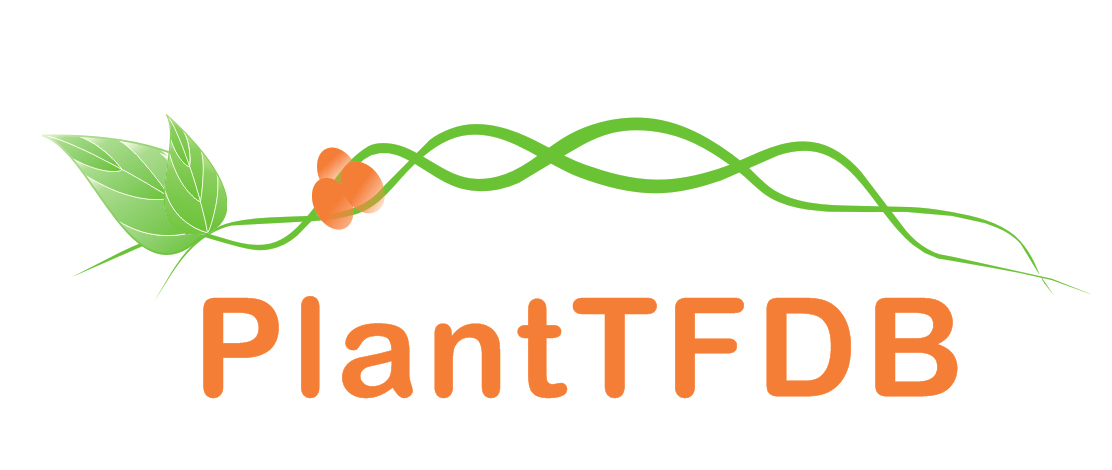| Signature Domain? help Back to Top |
 |
| No. |
Domain |
Score |
E-value |
Start |
End |
HMM Start |
HMM End |
| 1 | HSF_DNA-bind | 110.6 | 1.1e-34 | 47 | 138 | 2 | 102 |
HHHHHHHHHCTGGGTTTSEESSSSSEEEES-HHHHHHHTHHHHSTT--HHHHHHHHHHTTEEE---SSBTTTTXTTSEEEEESXXXXXXXXXXX CS
HSF_DNA-bind 2 FlkklyeiledeelkeliswsengnsfvvldeeefakkvLpkyFkhsnfaSFvRQLnmYgFkkvkdeekkskskekiweFkhksFkkgkkelle 95
Fl+k+++++ed+++++++sws nsfvv+d ++f++ +Lp+yFkhsnf+SFvRQLn+YgF+kv+ ++ weF+++ F +g+++ll+
Medtr3g104550.1 47 FLTKTFDVVEDPSTDSIVSWSGARNSFVVWDLHKFSTAILPRYFKHSNFSSFVRQLNTYGFRKVDPDR---------WEFANEGFLAGQRNLLK 131
9********************999*****************************************999.........***************** PP
XXXXXXX CS
HSF_DNA-bind 96 kikrkks 102
+ikr+++
Medtr3g104550.1 132 TIKRRRN 138
****986 PP
|
| Publications
? help Back to Top |
- Young ND, et al.
The Medicago genome provides insight into the evolution of rhizobial symbioses.
Nature, 2011. 480(7378): p. 520-4
[PMID:22089132] - Liu HC,Charng YY
Common and distinct functions of Arabidopsis class A1 and A2 heat shock factors in diverse abiotic stress responses and development.
Plant Physiol., 2013. 163(1): p. 276-90
[PMID:23832625] - Jung HS, et al.
Subset of heat-shock transcription factors required for the early response of Arabidopsis to excess light.
Proc. Natl. Acad. Sci. U.S.A., 2013. 110(35): p. 14474-9
[PMID:23918368] - Chauhan H,Khurana N,Agarwal P,Khurana JP,Khurana P
A seed preferential heat shock transcription factor from wheat provides abiotic stress tolerance and yield enhancement in transgenic Arabidopsis under heat stress environment.
PLoS ONE, 2013. 8(11): p. e79577
[PMID:24265778] - Ding Y, et al.
Four distinct types of dehydration stress memory genes in Arabidopsis thaliana.
BMC Plant Biol., 2013. 13: p. 229
[PMID:24377444] - Weng M, et al.
Histone chaperone ASF1 is involved in gene transcription activation in response to heat stress in Arabidopsis thaliana.
Plant Cell Environ., 2014. 37(9): p. 2128-38
[PMID:24548003] - Jang YH, et al.
A homolog of splicing factor SF1 is essential for development and is involved in the alternative splicing of pre-mRNA in Arabidopsis thaliana.
Plant J., 2014. 78(4): p. 591-603
[PMID:24580679] - Stief A, et al.
Arabidopsis miR156 Regulates Tolerance to Recurring Environmental Stress through SPL Transcription Factors.
Plant Cell, 2014. 26(4): p. 1792-1807
[PMID:24769482] - Dobrá J, et al.
The impact of heat stress targeting on the hormonal and transcriptomic response in Arabidopsis.
Plant Sci., 2015. 231: p. 52-61
[PMID:25575991] - Yamauchi Y,Kunishima M,Mizutani M,Sugimoto Y
Reactive short-chain leaf volatiles act as powerful inducers of abiotic stress-related gene expression.
Sci Rep, 2015. 5: p. 8030
[PMID:25619826] - Shi H, et al.
Melatonin induces class A1 heat-shock factors (HSFA1s) and their possible involvement of thermotolerance in Arabidopsis.
J. Pineal Res., 2015. 58(3): p. 335-42
[PMID:25711624] - Mueller SP,Krause DM,Mueller MJ,Fekete A
Accumulation of extra-chloroplastic triacylglycerols in Arabidopsis seedlings during heat acclimation.
J. Exp. Bot., 2015. 66(15): p. 4517-26
[PMID:25977236] - Nie S,Yue H,Xing D
A Potential Role for Mitochondrial Produced Reactive Oxygen Species in Salicylic Acid-Mediated Plant Acquired Thermotolerance.
Plant Physiol., 2016.
[PMID:26099269] - Nguyen AH, et al.
Loss of Arabidopsis 5'-3' Exoribonuclease AtXRN4 Function Enhances Heat Stress Tolerance of Plants Subjected to Severe Heat Stress.
Plant Cell Physiol., 2015. 56(9): p. 1762-72
[PMID:26136597] - Hu Z, et al.
Histone acetyltransferase GCN5 is essential for heat stress-responsive gene activation and thermotolerance in Arabidopsis.
Plant J., 2015. 84(6): p. 1178-91
[PMID:26576681] - Lämke J,Brzezinka K,Bäurle I
HSFA2 orchestrates transcriptional dynamics after heat stress in Arabidopsis thaliana.
Transcription, 2016. 7(4): p. 111-4
[PMID:27383578] - Wang X,Huang W,Liu J,Yang Z,Huang B
Molecular regulation and physiological functions of a novel FaHsfA2c cloned from tall fescue conferring plant tolerance to heat stress.
Plant Biotechnol. J., 2017. 15(2): p. 237-248
[PMID:27500592] - Chen ST,He NY,Chen JH,Guo FQ
Identification of core subunits of photosystem II as action sites of HSP21, which is activated by the GUN5-mediated retrograde pathway in Arabidopsis.
Plant J., 2017. 89(6): p. 1106-1118
[PMID:27943531] - Kataoka R,Takahashi M,Suzuki N
Coordination between bZIP28 and HSFA2 in the regulation of heat response signals in Arabidopsis.
Plant Signal Behav, 2017. 12(11): p. e1376159
[PMID:28873003] - Wang X,Zhuang L,Shi Y,Huang B
Up-Regulation of HSFA2c and HSPs by ABA Contributing to Improved Heat Tolerance in Tall Fescue and Arabidopsis.
Int J Mol Sci, 2018.
[PMID:28914758] - Llamas E,Pulido P,Rodriguez-Concepcion M
Interference with plastome gene expression and Clp protease activity in Arabidopsis triggers a chloroplast unfolded protein response to restore protein homeostasis.
PLoS Genet., 2017. 13(9): p. e1007022
[PMID:28937985] - Li X, et al.
Plastid Translation Elongation Factor Tu Is Prone to Heat-Induced Aggregation Despite Its Critical Role in Plant Heat Tolerance.
Plant Physiol., 2018. 176(4): p. 3027-3045
[PMID:29444814]
|




